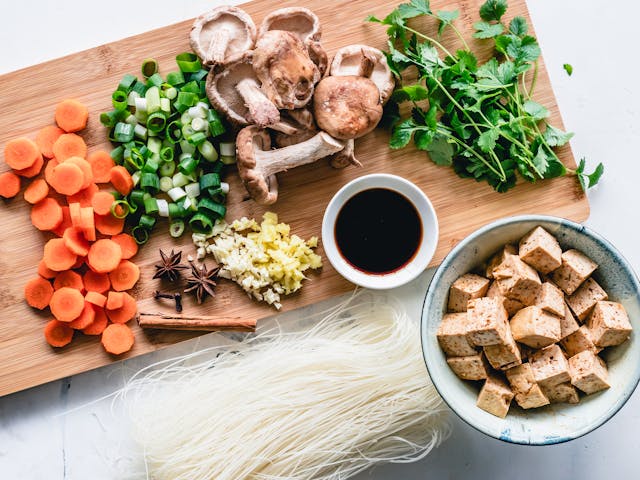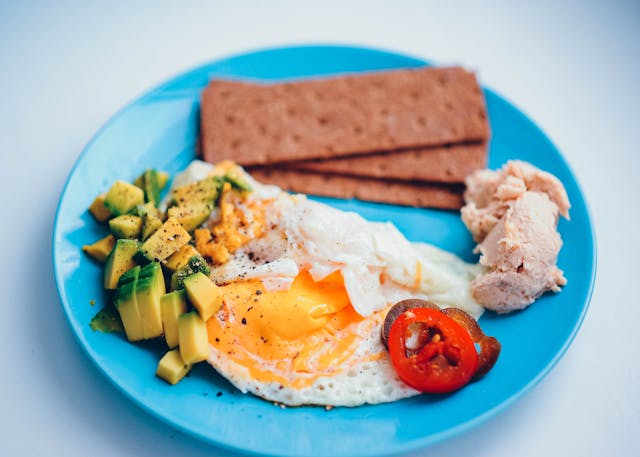Meal Prep Made Easy: How to Save Time Without Sacrificing Flavor
Meal prepping doesn’t have to mean eating bland chicken and rice five days a week. With a little planning and creativity, you can enjoy delicious, diverse meals while saving time, reducing stress, and sticking to your health goals. Whether you're a busy professional, a parent, or just trying to eat better, mastering meal prep can transform your week.

Why Meal Prep?
Meal prepping is more than just a time-saver—it’s a strategy for better living. Here are some key benefits:
-
Saves Time: No more scrambling to figure out dinner every night.
-
Reduces Waste: Plan portions and use ingredients more efficiently.
-
Improves Nutrition: Take control of what goes into your meals.
-
Saves Money: Fewer impulse buys and takeout orders.
-
Supports Goals: Whether it's weight loss, muscle gain, or eating cleaner, prep helps you stay on track.
Step 1: Plan Your Meals
Before you hit the kitchen, map out what you’re eating for the week.
-
Choose your recipes: Pick 2–4 core meals that you enjoy and can eat multiple times. Rotate flavors to avoid boredom.
-
Balance your plate: Aim for a mix of lean proteins, complex carbs, healthy fats, and lots of veggies.
-
Prep for snacks too: Think fruit, nuts, yogurt, or cut-up veggies with hummus.
Step 2: Grocery Shop Smart
Use your meal plan to create a shopping list—and stick to it.
-
Shop your pantry and freezer first: You might already have half the ingredients.
-
Buy in bulk: Rice, oats, beans, and frozen veggies are great staples.
-
Opt for versatile items: Things like rotisserie chicken, canned tuna, sweet potatoes, and greens go a long way.
Step 3: Cook in Batches
Set aside a few hours once or twice a week to cook.
-
Use sheet pans: Roast a variety of veggies and proteins all at once.
-
Try one-pot meals: Soups, stews, and grain bowls are easy to portion and reheat.
-
Double recipes: Cook once, eat twice (or more).
Step 4: Mix & Match for Variety
Keep your taste buds happy with simple flavor swaps.
-
Use sauces and dressings: A basic grilled chicken can become Mexican, Mediterranean, or Asian-inspired with the right toppings.
-
Change up your grains: Quinoa, brown rice, couscous, or soba noodles keep things interesting.
-
Add fresh herbs or citrus before eating: It makes a huge difference.
Step 5: Store Like a Pro
How you store your food matters just as much as how you cook it.
-
Use quality containers: Opt for glass or BPA-free plastic containers that are microwave and dishwasher safe.
-
Label everything: Include the date and contents.
-
Freeze extras: Perfect for backup meals when life gets hectic.
Flavorful Meal Prep Ideas
Here are some easy combos to get you started:
-
Grilled chicken + roasted sweet potato + broccoli + tahini dressing
-
Turkey meatballs + quinoa + roasted zucchini + marinara
-
Chickpea salad + whole wheat pita + cucumber-tomato mix + lemon vinaigrette
-
Stir-fried tofu + jasmine rice + bok choy + sesame-ginger sauce
-
Oven-baked salmon + farro + asparagus + dill yogurt sauce

Final Tips
-
Keep it realistic: You don’t have to prep every single meal. Start with lunches or dinners and build from there.
-
Switch it up weekly: New recipes = less boredom.
-
Don’t stress about perfection: The goal is progress and convenience, not gourmet presentation.
Meal prep doesn’t mean sacrificing flavor or joy—it’s about creating a structure that frees up your week while still nourishing your body. Cook once, eat better all week.












